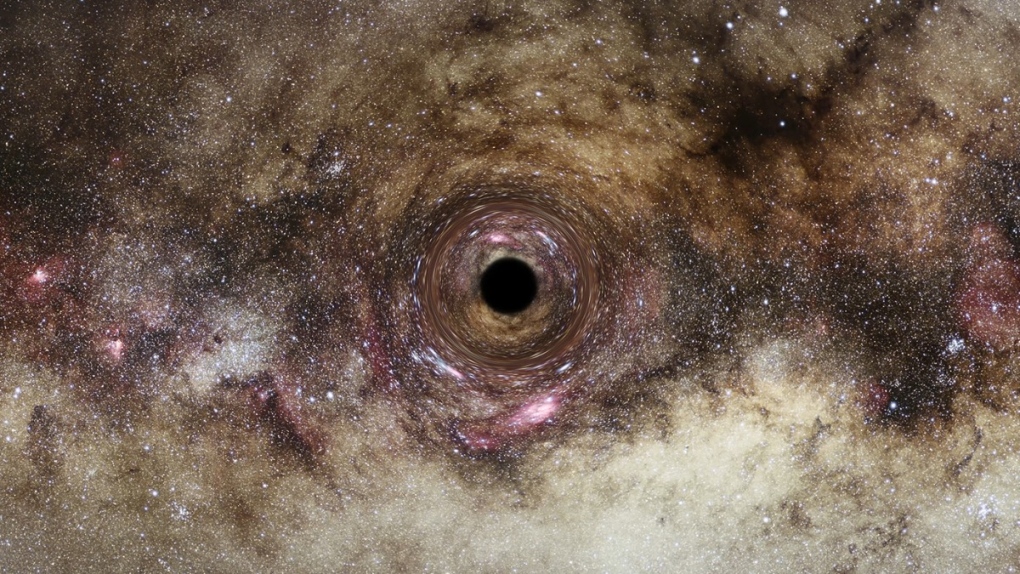An ultramassive black hole, understood to be one of the largest ever detected, has been discovered by astronomers using a new technique.
The findings, published by the Royal Astronomical Society, show that the black hole is more than 30 billion times the mass of the sun -- a scale rarely seen by astronomers.
The researchers described it as an "extremely exciting" discovery that opens up "tantalizing" possibilities for detecting further black holes.
The team, led by Durham University in the United Kingdom, used a technique known as gravitational lensing -- whereby a nearby galaxy is used as a giant magnifying glass to bend the light from a more distant object. This enabled them to closely examine how light is bent by a black hole inside a galaxy hundreds of millions of light years from Earth.
Supercomputer simulations and images captured by the Hubble Space Telescope were also used to confirm the size of the black hole.
This is the first black hole found using gravitational lensing, with the team simulating light travelling through the universe hundreds of thousands of times, according to a news release from the Royal Astronomical Society.
"This particular black hole, which is roughly 30 billion times the mass of our Sun, is one of the biggest ever detected and on the upper limit of how large we believe black holes can theoretically become, so it is an extremely exciting discovery," lead study author James Nightingale, an observational cosmologist from the Department of Physics at Durham University, said.
"Most of the biggest black holes that we know about are in an active state, where matter pulled in close to the black hole heats up and releases energy in the form of light, X-rays, and other radiation," Nightingale added.
"However, gravitational lensing makes it possible to study inactive black holes, something not currently possible in distant galaxies. This approach could let us detect many more black holes beyond our local universe and reveal how these exotic objects evolved further back in cosmic time."
Researchers believe the finding is significant as it "opens up the tantalising possibility that astronomers can discover far more inactive and ultramassive black holes than previously thought" and "investigate how they grew so large," according to the news release.
The story of this particular discovery started back in 2004 when fellow Durham University astronomer, Alastair Edge, a research fellow, noticed a giant arc of a gravitational lens when reviewing images of a galaxy survey, according to the news release.
The team has now revisited the discovery and explored it further with the help of NASA's Hubble telescope and the DiRAC COSMA8 supercomputer.
Ultramassive black holes are the most massive objects in the universe and a rare find for astronomers.
Their origins are unclear, with some believing they were formed from the merging of galaxies billions of years ago.
Each time a galaxy merges with another one, stars are lost and a black hole gains mass -- which accounts for the incredibly high mass of some black holes.









































